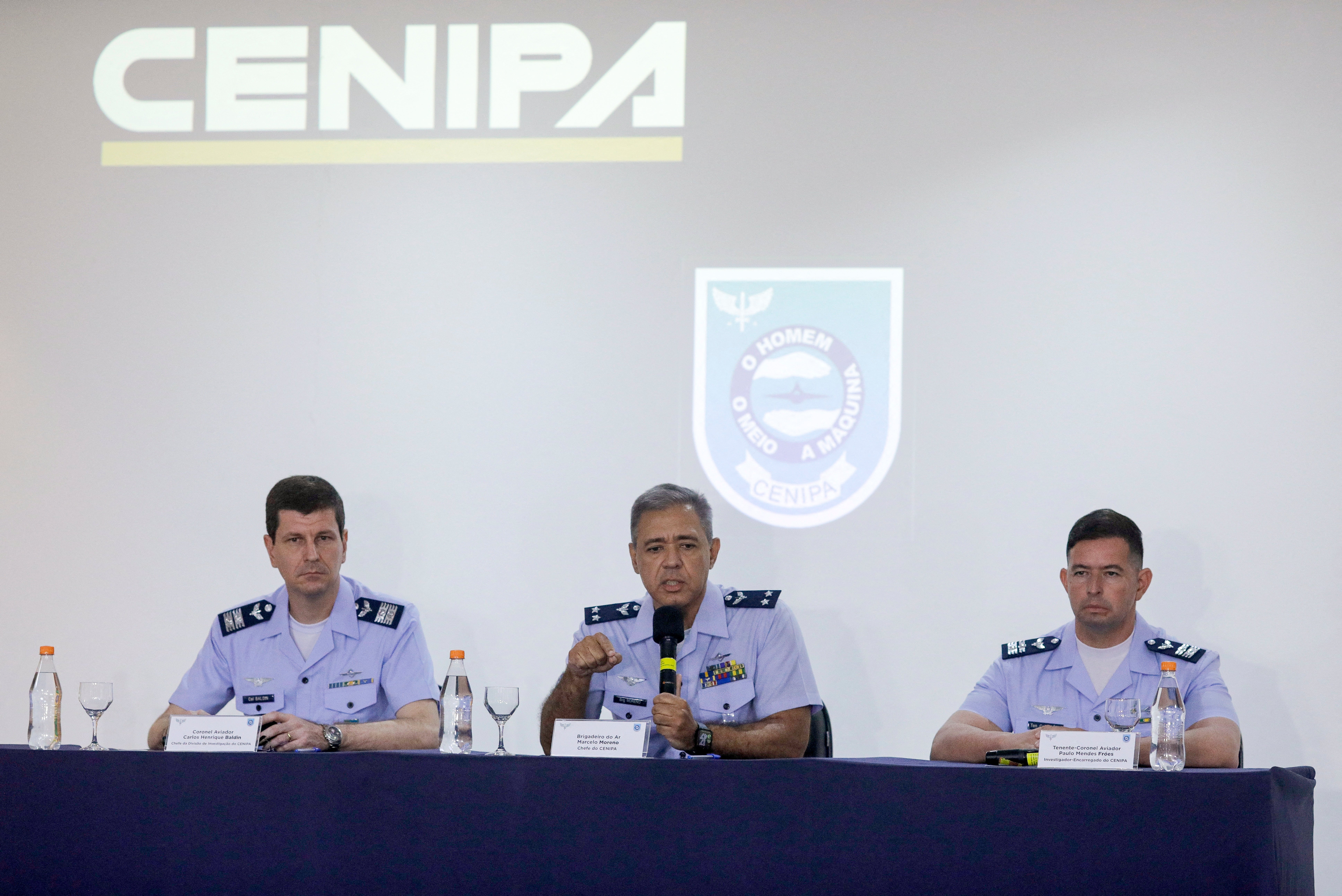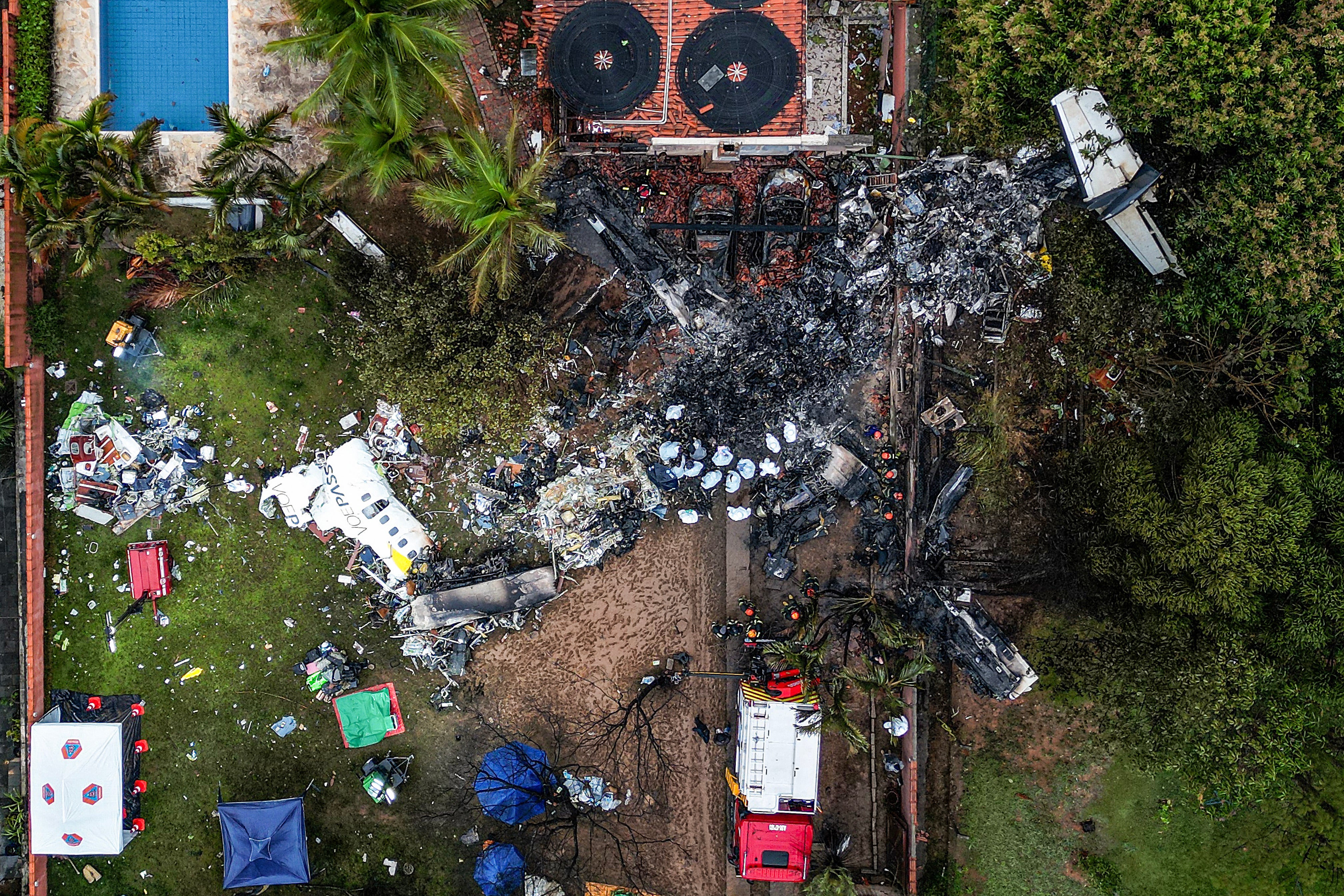Brazilian plane crash investigation reveals signs of ice buildup but no clear cause
Investigators probe Brazil’s worst plane crash in years, seeking answers to tragedy that killed 62 people
A preliminary report into the crash of an ATR-72 aircraft in Brazil in early August suggests that ice buildup on the plane may have played a role in the accident.
The report released on Friday stops short of identifying a definitive cause of the crash that claimed the lives of all 62 people on board the 9 August flight. The flight had crashed in Vinhedo, some 80km northwest of Sao Paulo.
According to the report, icing detectors were activated on the Voepass aircraft, and cockpit recordings revealed that the co-pilot reported “a lot of icing” during the flight, an official with the country’s Centre for Research and Prevention of Aeronautical Accidents (Cenipa) told a press conference.
This has led investigators to suspect that the plane’s deicing system may have failed, although further confirmation is needed.
Experts consulted by Reuters agree that icing could have been a factor, but caution that the report is preliminary and that accidents are often the result of multiple factors. US aviation safety expert Anthony Brickhouse noted that “everything I have read from the report today is consistent with icing, but accidents are rarely caused by one single event”.
The investigation, led by Cenipa, is expected to last over a year.
Officials say that while loss of speed alerts were triggered, the crew never declared an emergency before the plane crashed. The cause of the loss of control remains unclear, with Lieutenant Colonel Paulo Froes stating, “what we know is that the airplane was flying in an area with severe icing conditions”.


The ATR-72 aircraft involved in the 9 August crash has a troubling history of ice buildup leading to loss of control, including a 2016 incident in Norway where a plane stalled but the pilot managed to regain control. A similar scenario unfolded in 2010, when icing and pilot error caused an Aero Caribbean Flight 883 crash in Cuba, resulting in 68 fatalities.
The recent crash drew global attention after dramatic images of the plane’s so called flat spin circulated on social media.
According to three police officers who worked on identifying the victims, the crash site revealed a harrowing scene: passengers bracing for impact, with one mother embracing her son. The plane’s unusual descent, characterised by a lack of forward movement, resulted in minimal damage to surrounding homes.
Mauricio Freire, chief of Sao Paulo’s Identification Bureau, described the scene: “It was the first time I saw a plane hit the ground like that, it didn’t slide at all.”
Additional reporting by agencies
Join our commenting forum
Join thought-provoking conversations, follow other Independent readers and see their replies
Comments
Bookmark popover
Removed from bookmarks